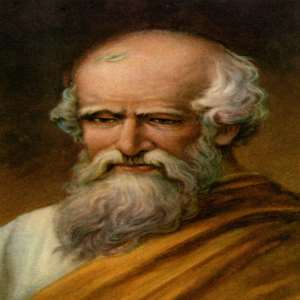

In statics he worked out the rigorous mathematical proofs behind the principle of the lever and the compound pulley-mechanical devices that can multiply the effects of forces. Most impressively, he devised formulas to determine the surface areas and volume of curved surfaces and solids, a topic that anticipated the development of the integral calculus 2,000 years later by Newton and Leibniz.Īs a physicist Archimedes is credited with establishing the fields of statics of objects and hydrostatics of fluids. He also invented methods to solve cubic equations and to determine square roots by approximation. In this manner he showed that large numbers could be considered and handled effectively. He then used this number system to estimate the number of grains of sand in the universe as given by the number 10 63. In his treatise The Sandreckoner, he proposed a number system capable of expressing very large numbers. In an attempt to improve Greek numerical notation, he devised an ingenious system for the expression of very large numbers.

What is more amazing is the fact that the average of Archimedes’ upper and lower limits on the value of n is 3.1419, less than three parts in ten thousand different from the modern approximation given: n = 3.1416. He made the most accurate prediction of his time about the value of n, bracketing its value within the upper and lower limits given by 223/71 = 3.14085 > n > 3.1429 = 220/70. Among his most important results was the determination of the value of n.


The boldness and originality of Archimedes’ mathematical work are tempered by its extreme rigor and adherence to the highest standards of the geometry of his time. Most disciples would remain in Alexandria, but Archimedes returned to Syracuse, where he spent the rest of his life studying mathematics and physics, diverting himself by designing the numerous mechanical devices that earned him widespread renown. As a young man, he traveled to Alexandria, then a great capital of learning for mathematics, and studied under Conon and other mathematicians, who had been students of Euclid. His father was Phidias, an astronomer the family was a noble one, possibly related to that of King Hieron II of Syracuse. The date has been based on the claim of a 12th-century historian that he died at age 75, and then working backward from the date of his death in 212 b.c., which is reliably established. The impression his mechanical genius made on the popular imagination gave rise to numerous legends, which today are viewed by most historians as apocryphal.Īrchimedes is believed to have been born in 287 b.c., in Syracuse, Sicily, then a Greek colony. He was widely known during his lifetime, mainly because of his inventions that were used in war. What remains for historians to draw on are Archimedes’ nine surviving mathematical treatises, which he published in the form of correspondence with the leading mathematicians of his time (including the Alexandrian scholars Conan of Samos and Eratosthenes of Cyrene) the accounts of his life left by his Greek contemporaries and stories from Plutarch, Livy, and others. The biography of him written by his friend Heraclei-des has been lost. Only a handful of facts about Archimedes’ life have been established with certainty. He is most famous for Archimedes’ principle, which offered the first scientific explanation of what makes solid objects float. As a physicist, he is credited with establishing the fields of statics, a branch of mechanics dealing with the forces on an object or in a system in equilibrium, and hydrostatics, the study of fluids (liquids and gases) in equilibrium. 287-212 b.c.) Greek Theoretician and Experimentalist (Mechanics, Hydrostatics), Mathematician, AstronomerĪrchimedes is widely viewed as the greatest scientist of the ancient world.


 0 kommentar(er)
0 kommentar(er)
